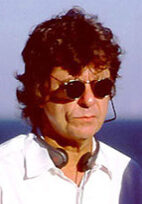In 701 B.C. the Assyrian empire was in its ascendancy. It had already vanquished the kingdom of Israel to the north including the capital at Samaria. It then prepared an assault on Judah and its capital at Jerusalem.
But in one of those significant events that changes the course of world history, Assyria was repelled. Jerusalem was saved until 586 B.C. when the Babylonians sacked the city, forcing its leadership class into exile.
Henry Aubin, in a major feat of scholarship, determines that Jerusalem was aided by a Kushite army from Africa which had marched northeast from the Nile valley. While the Bible attributes the Assyrian retreat to an angel and secular commentators cite pestilence, Aubin, in a meticulously documented work, demonstrates that an alliance with the African nation of Kush bolstered Jerusalem’s defences.
Kush, also known as Nubia, was located in what is now southern Egypt and northern Sudan. A monarchy that existed for more than 1000 years, from 900 B.C. to A.D. 350, Kushites held sway over Egypt from 712 B.C. to about 660 B.C. Of Egypt’s 31 dynasties, this, the 25th Dynasty, is the only one that all scholars agree, was black.
The commander of the Kushite expeditionary force was Taharqa (or as the Bible calls him Tirhakah). This Kushite prince, who had his own interests in halting Assyrian expansion, likely caught the aggressors by surprise as they prepared their siege of Jerusalem.
Aubin offers a thrilling military history and a stirring political analysis of the ancient world. He also sees the event as influential over the centuries.
The Kushite rescue of the Hebrew kingdom of Judah enabled the fragile, war-ravaged state to endure, to nurse itself back to economic and demographic health, and allowed the Hebrew religion, Yahwism, to evolve within the next several centuries into Judaism. Thus emerged the monotheistic trunk supporting Christianity and Islam.

Martyn Burke works in a multitude of worlds, moving between novels, films, and documentaries. He has published six highly acclaimed novels, been nominated for Emmys, as well as Director’s and Writer’s Guild awards for his feature and television films. He has made award-winning television and theatrical documentaries including the Academy Award-short listedUnder Fire: Journalists in Combat, and co-wrote the classic comedy film Top Secret. He divides his time between Los Angeles and Toronto.
Praise for
The Truth About the Night
“Martyn Burke offers a master class in timing and subtlety…the answers come, pulling us into the character’s dilemmas, making us care, keeping us turning the pages…With so much drama, information and emotion packed into fewer than 350 pages. The Truth About the Night remains with you long after the last line is read.â€
Globe and Mail
Manuscript Available
20b
Martyn Burke, a celebrated author and award-winning filmmaker, has crafted a unique and riveting memoir of his journey through what he calls 20b, in effect, a second Twentieth Century that began in 1965 and ended when the planes went into the twin towers on September 11, 2001.
20b was as different from 20a, the other part of the 20th Century, as any two adjacent epochs could be. And at its beginning in a single year—1965, six seminal events occurred, interweaving and building in ferocity over the 36 intervening years, propelling the historic forces that led to 9/11.
And Burke’s life, by design and by fate, has constantly been lived at the center of the events that made up 20b. He spent time with the Afghan rebels who were fighting the Russians. He was in Saigon and the jungles of Vietnam. He went joy riding with tyrant Idi Amin in Kampala and lived to write about it. He was in the American south when civil rights battles raged. And he had skirmishes and triumphs in Hollywood.
“Dividing the course of human events into centuries is like drawing lines through air,†Burke writes. In his examination of the “contrails†of signature events, he creates a cultural map that traces colliding ideologies and signalled an eruption in the world order. Egyptian civil servant Sayyib Qtub’s Milestonesrallied dissidents to jihad against the US. Lenny Bruce was tried for uttering obscene words during his famous comedy routine; house-wife Estelle Griswald’s challenged a law preventing access to birth control; Lyndon Johnson struggled to force the laws demanded by the civil rights movement on his fellow southerners; the Catholic Church modernized with Vatican II; and Joseph J. Schildkraut’s challenged Freudian psychiatry with the publication of a single article.
Burke illuminates and invigorates these turning points with sharply observed anecdotes from his own experiences and observations from a front row seat. Welcome to 20B.